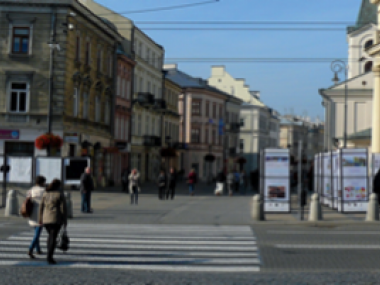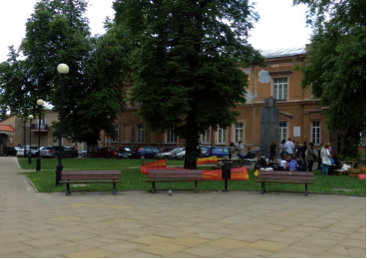The Peer-review Method from a USER Perspective
Edited on
06 February 2015The peer-review is quite a common method among URBACT projects. It allows the cities involved in the network to benefit from the expertise of project partners, auditing thus their local plan. The USER project used this method too. Let’s see how!

USER peer-review workshops group together 3 cities that share the same challenge related to their public space and come from different geographical locations in Europe. Following a presentation and an on-site visit in the host city, the guest cities give their feedback, challenging sometimes what has been done, proposing suggestions and steps forward. But as we will see from the testimonials the exchanges are much richer than that.
As we said, guest cities give advice:
« We would recommend that the city consider the social aspect and neighbourhood management as just as important as possible urban development measures, and start thinking about how the inhabitants of the redeveloped spaces will - or will not - feel at home there. »
Grenoble-Alpes Métropole, in Cracow
« Lublin should find ways to use the derelict buildings around Rybny Square, just as we did in Riga. It's very important to bring heritage buildings back to life because, if there's no life in the buildings around a square, the square itself will never be a living public space »
Riga, in Lublin
« There are very few cultural activities held on Rybny Square because there are very few participants. However, based on our experience in Malaga, we firmly believe that it is important to schedule cultural activities very regularly in the district. They could be either related to local events, such as cultural nights, or specific to a given public space. This helps keep the public space in constant use, enhance the identity of the space and develop users' sense of community »
Malaga, in Lublin

The host cities are not the only ones to benefit from a fresh perspective, though. Guest cities leave the workshops with fresh questions and fresh ideas about improving their pilot sites:
« We were surprised to see that very simple measures can significantly change the way a public space is used. For example, opening the doors at the back of the university, which open onto Jan Kochanowski Square, for one day attracted throngs of students onto the square. For one day, this "public space for no-one" was transformed into a "public space for everyone »
Riga, in Lublin
« During the workshop, we ran a participatory workshop with architecture students. It showed us that residents and users can have very lively, positive discussions with the academic community. It might be important for us to get students, residents and all of the other stakeholders to share their ideas, questions and viewpoints for each pilot site »
Lisbon, in Cracow

Also, the workshops provide an opportunity for the cities to work together on finding solutions to the problems they are each encountering on their pilot sites. These problems might be thematic (how to get users more involved, how to bring a square back to life...) or practical (how to lead a Local Support Group, for example).
« When it comes to organising and running appropriate working groups to deal with the question of underprivileged districts, Pescara and Dresden can probably learn a lot from Copenhagen »
Dresden, in Pescara
« In Pescara, we talked about how to involve all of the stakeholders, and whether it was even a good idea. Dresden raised a very interesting question: what do you do if a key project stakeholder does not want to get involved? We had to deal with a situation like that, and took us numerous bilateral meetings to convince the stakeholder to join our Local Support Group»
Copenhagen, in Pescara
At the end of the workshops, guest cities draft notes on their experience and conclusions related to the peer-review. They pinpoint the main lessons learnt from the workshops, indicating what struck them as unusual or noteworthy. They also set down their advice and recommendations, their point of view on the LSGs’ activities and so on. The host city can then use all of this input to improve its local action plan.
Read more:
USER Minisite - URBACT Website
 Download USER Baseline Study (4.57 MB) – Project publications
Download USER Baseline Study (4.57 MB) – Project publications- Innovations in public spaces – URBACT blog
Submitted by admin on
